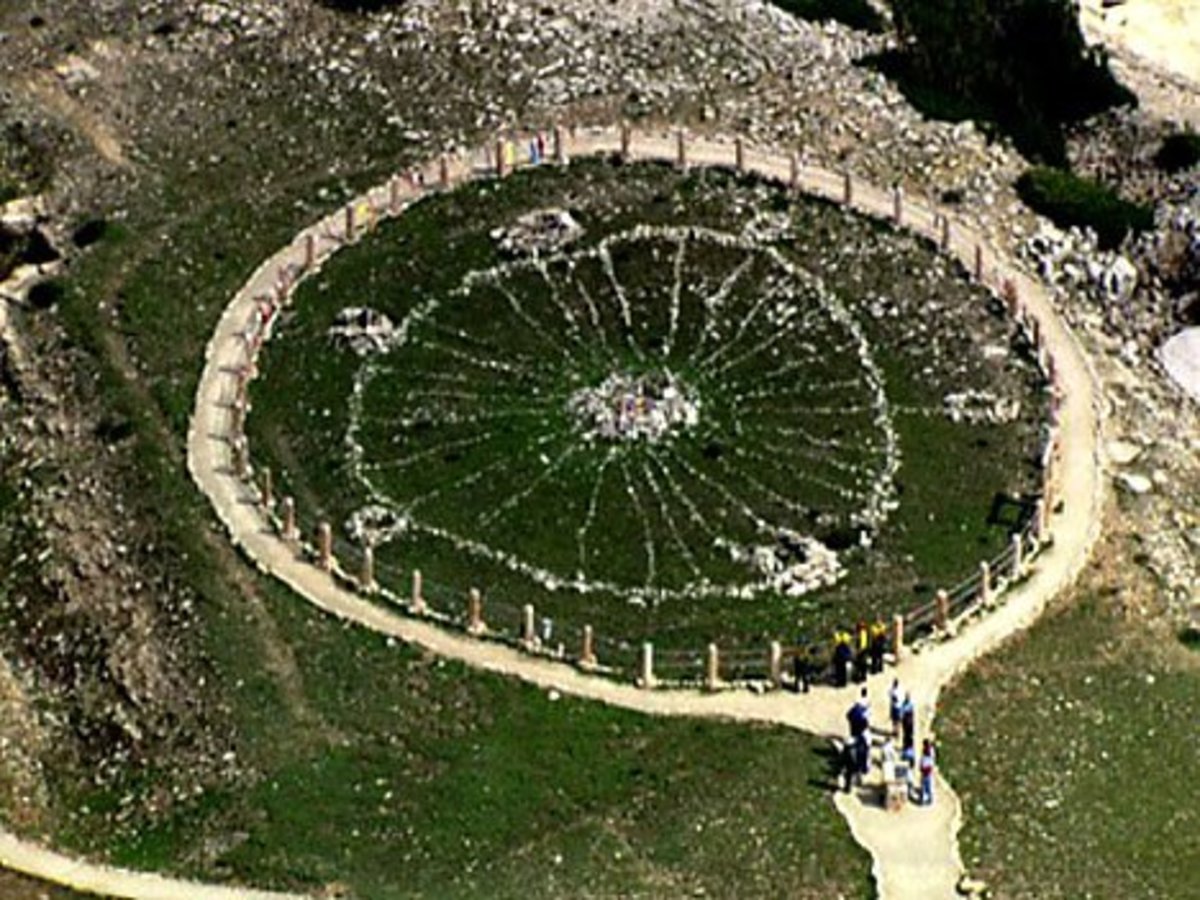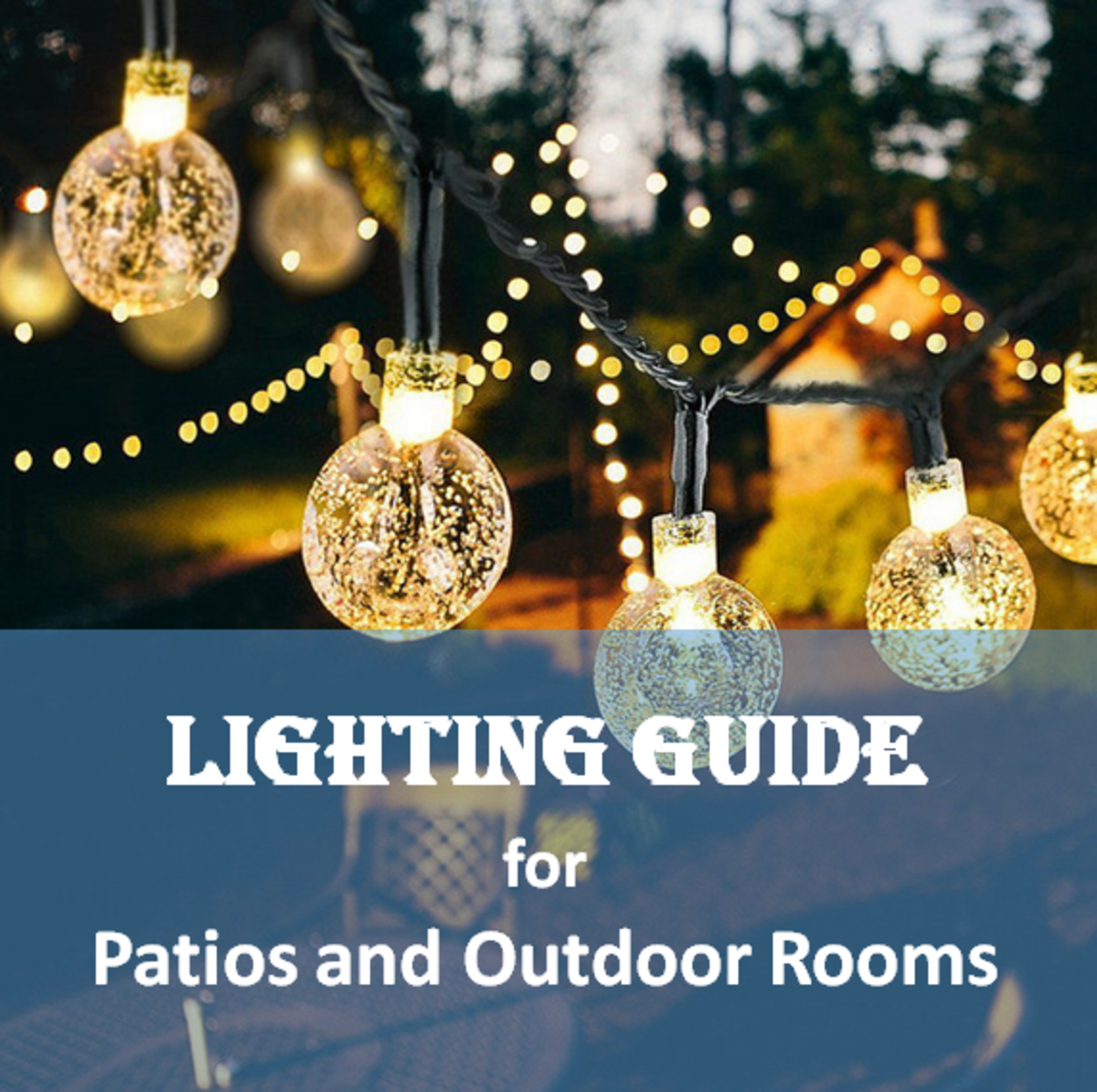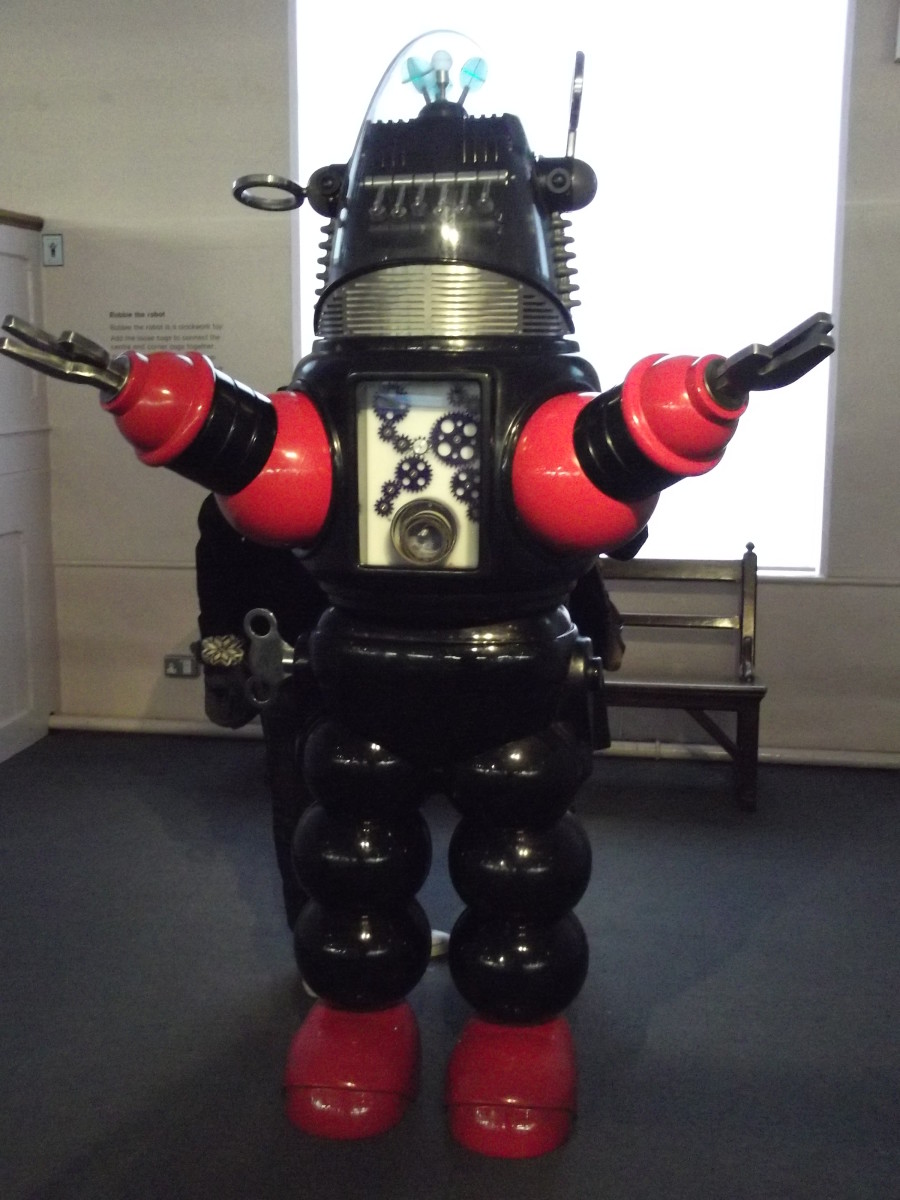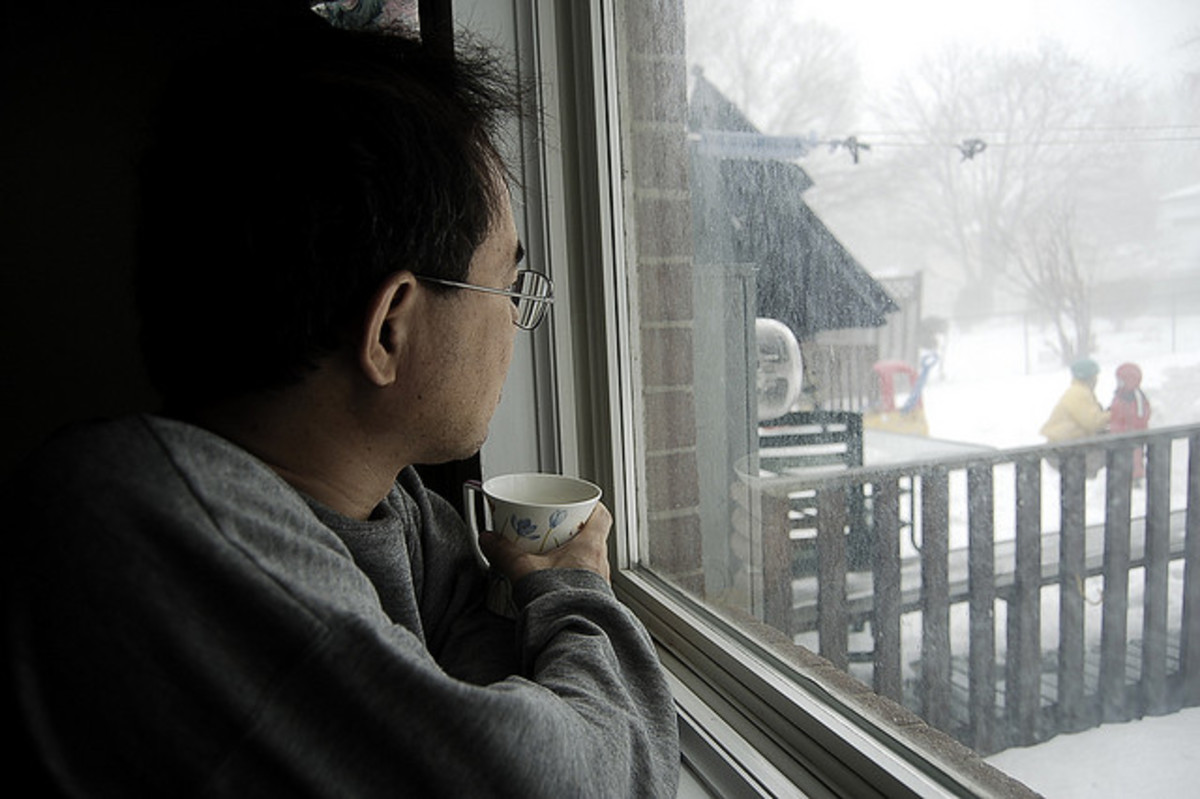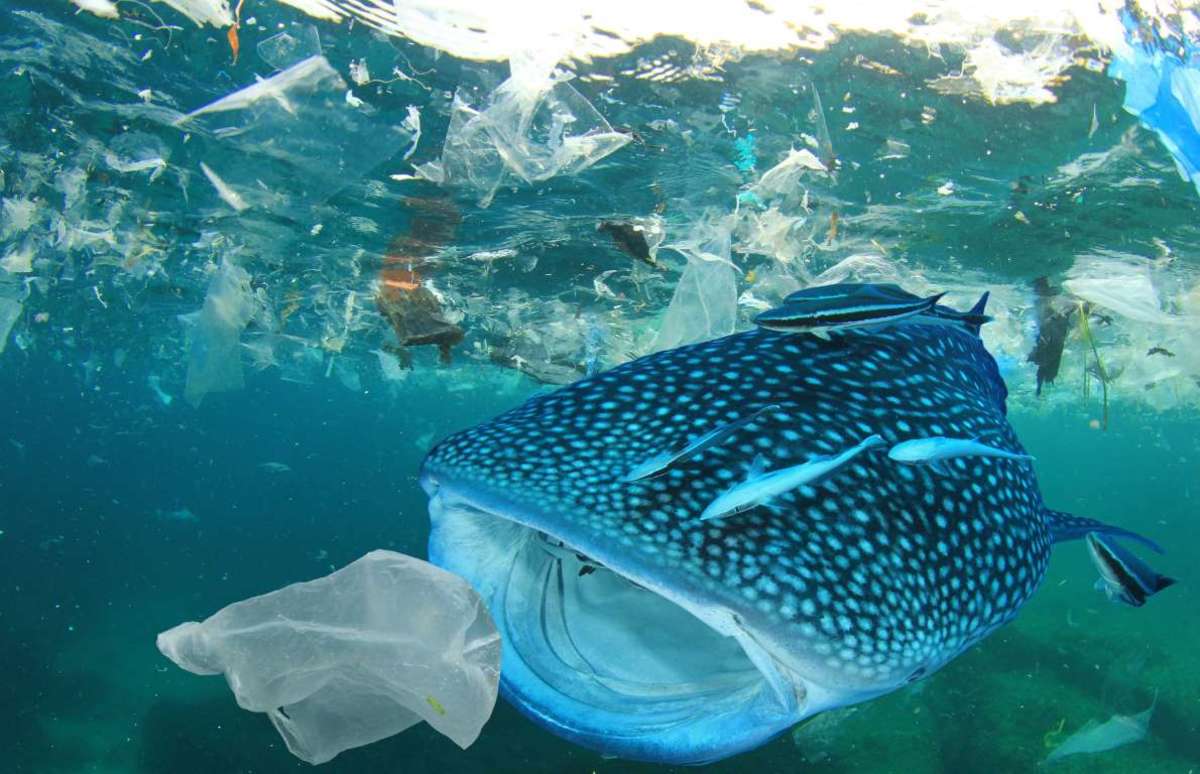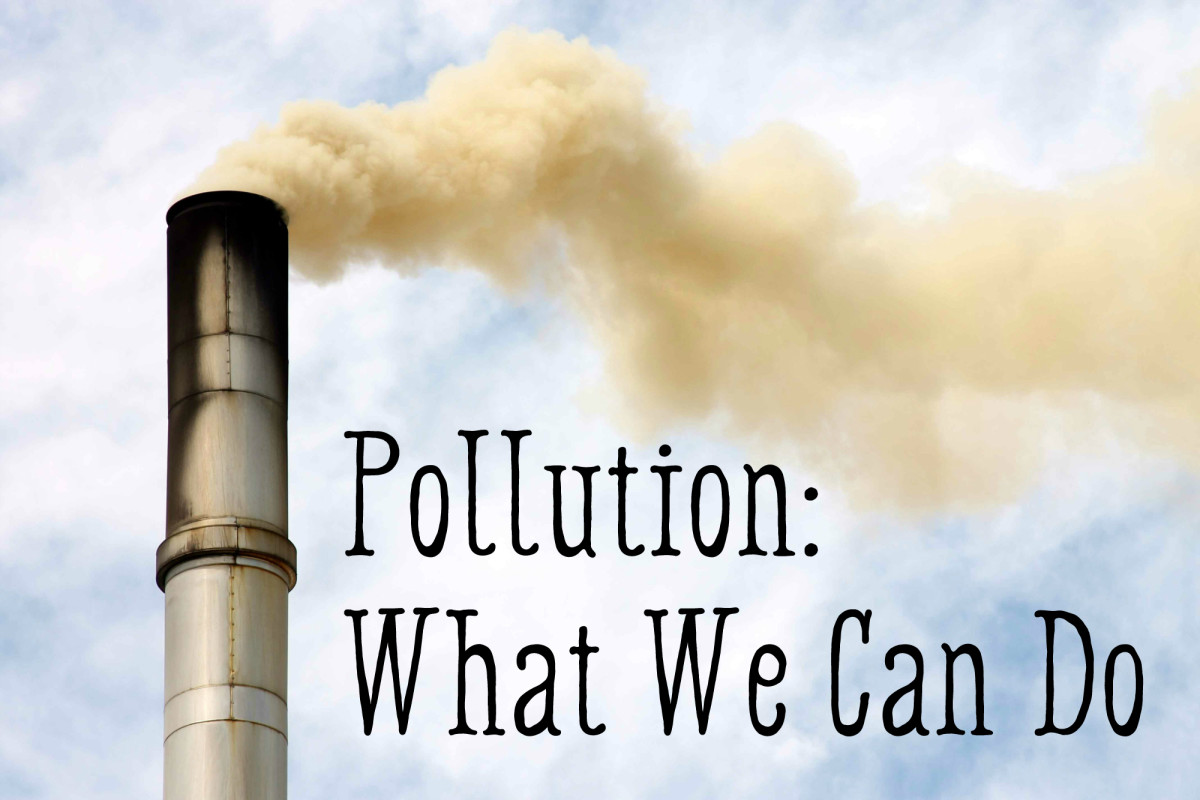Light Pollution

Light pollution is one of the least known types of pollution, but its effects on human health and the environment can be just as serious as some better-known forms of pollution.
Types of Light Pollution
Light pollution is most severe in large cities and other built-up areas, but can be a problem in rural areas as well. Light is one of the most difficult pollutants to identify, because one person's irritating light pollutant is another's expensive billboard, or beautifully lit patio.
However, there are five basic types of light pollution:
- Light Trespass is one of the most annoying. A streetlight or a neighbor's porch light that shine through your window from outside is an example of light trespass.
- Glare is a more dangerous type of light pollution. It is caused by excessive contrast between light and dark areas in a field of vision, and it particularly affects road safety. Excessively bright or badly shielded lights can temporarily blind drivers or pedestrians, leading to accidents.
- Another form of light pollution that commonly affects road safety is clutter. Clutter refers to excessive groupings of lights, especially bright or flashing lights, which can distract or confuse drivers.
- Over-illumination refers simply to the excessive or inefficient use of lighting. Leaving lights on when they are not being used is over-illumination; so is poorly designed lighting that illuminates areas that don't need to be illuminated, or illuminates areas more brightly than necessary.
- Sky Glow refers to the "glow" effect that appears over populated areas at night. It is primarily a combination of reflected light from illuminated areas and badly directed light escaping into the sky, where it is scattered by the atmosphere and redirected back at the ground.
The Earth at Night
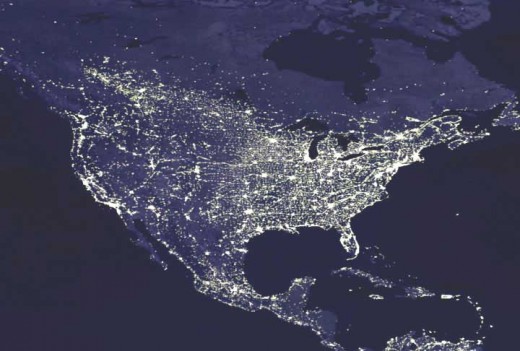
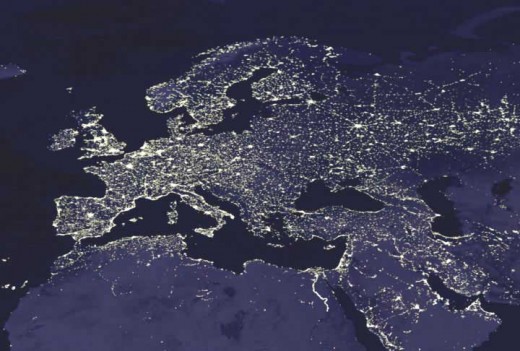
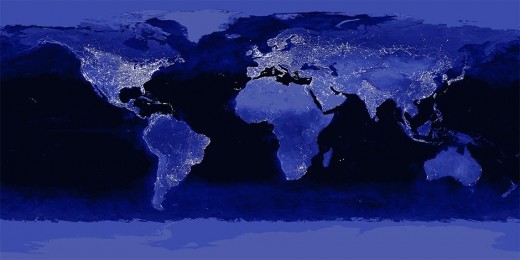
Effects of Light Pollution
In addition to the effects on road safety described above, light pollution affects human health in other ways.
Over-illumination both during the way and at night has been shown to lead to increased headaches and anxiety levels, higher levels of worker fatigue and stress, insomnia, and decreased sexual functioning.
Night-time exposure to light reduces the body's natural production of melatonin, an important hormone that helps regulate the immune system and serves as an antioxidant, among other functions. Reduced melatonin levels are believed to be responsible for unusually high rates of cancer in night workers, and women exposed to light at night through bright master bathroom nightlights or similar have increased rates of breast cancer. Unusually low levels of melatonin have also been observed in individuals with autism, though the exact causes and effects of this correlation are unknown at this time.
Light pollution also has environmental effects. Migrating birds, nocturnal moths, and sea turtle hatchlings are among the animals known to be disoriented by excessive illumination, sometimes fatally. At least 4-5 million birds per year are estimated to die due to collisions caused by light pollution.
Light pollution has also been associated with an increase in algae blooms on lakes, which can lower water quality and kill aquatic plants and animals.
Over-illumination is also responsible for significant amounts of energy waste in the United States and around the world, an estimated 2 million barrels of oil per day in the United States alone.
Finally, light pollution is the bane of astronomers both amateur and professional, and they have been instrumental in raising awareness of the problem.
Not all effects of light pollution can be measured. I was lucky enough to grow up in the country. Although the glow of nearby Omaha interfered on the northern horizon, it was still dark enough across most of the sky that the Milky Way and many of its best constellations were clearly visible from our yard. I still remember, however, stepping out of our tent one late night in a campground in Western Nebraska when I was about 11, glancing up... and being struck dumb by the brilliance and incalculable vastness of the stars. How can one measure awe and wonder? How can one value its loss?
What We've Lost
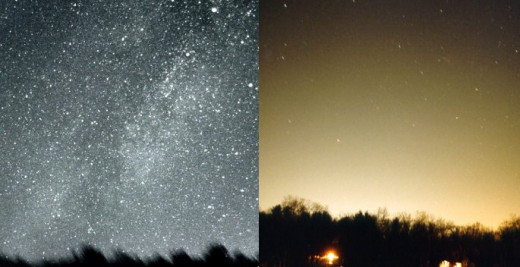
Reducing Light Pollution
Although reducing light pollution is complicated at the regulatory level by differing perceptions and standards, in practice it is relatively easy to combat.
Turning off lights when they're not in use not only decreases light pollution, it also lowers your energy bills. Unplugging appliances with LED displays when not in use, especially in the bedroom, also reduces both light pollution and energy bills.
Outside, choose lights that direct illumination down and allow a minimum of light to escape to the side. The International Dark-Sky Association includes extensive information about best choice lighting fixtures and design for residential, commercial, and municipal applications.The U.S. Green Building Council also factors light pollution reduction into its LEED Rating System, and Alin Tolea, of Johns Hopkins University, offers some examples of good lighting vs. bad lighting on his website.
Learn More
- Light pollution - Wikipedia
Light pollution, also known as photopollution or luminous pollution, is excess or obtrusive light created mainly by humans. - International Dark-Sky Association
The mission of the International Dark-Sky Association (IDA) is to preserve and protect the nighttime environment and our heritage of dark skies through quality outdoor lighting. - The Campaign for Dark Skies
The CfDS aims to preserve and restore the beauty of the night sky by campaigning against excessive, inefficient and irresponsible lighting that shines where it is not wanted nor needed. - Our Vanishing Night — National Geographic Magazine
Now most of humanity lives under intersecting domes of reflected, refracted light. Of all the pollutions we face, light pollution is perhaps the most easily remedied. - Light Pollution - National Geographic Magazine
Short summaries and bibliographies on the effects of light pollution

